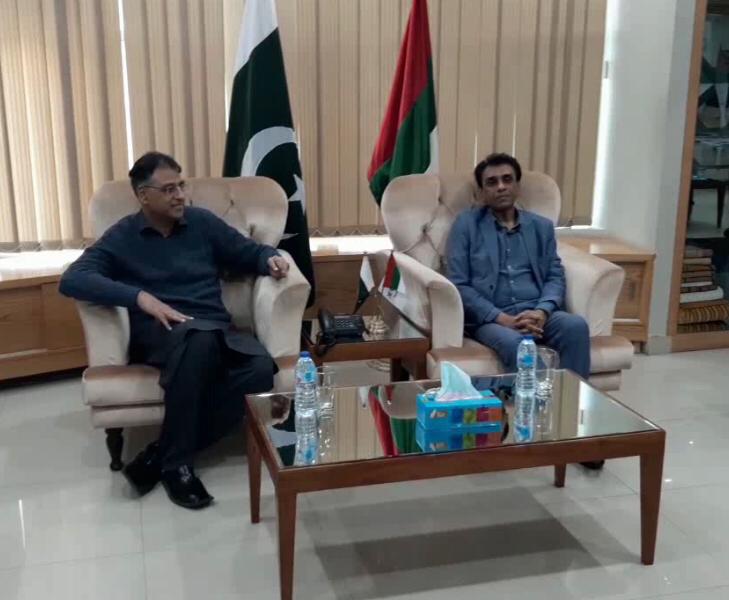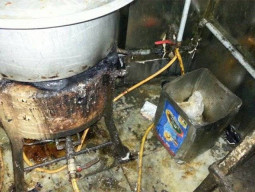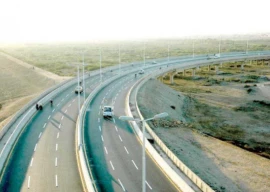
Prime Minister Imran Khan called up MQM-P Convener Khalid Maqbool Siddiqi, hours after a PTI delegation, led by Planning Minister Asad Umar, visited the MQM-P headquarters in Karachi. However, according to sources, the MQM-P has refused to budge.
The prime minister urged Siddiqi to attend the cabinet meeting in Islamabad on Tuesday (today), sources said, but the MQM-P convener didn’t commit. Imran, according to sources, assured Siddiqi that he would assuage “legitimate” concerns of his party.
Siddiqi said his party would not pull out of the ruling coalition, but he would not return to the cabinet unless their grievances were addressed.
The prime minister’s telephone call followed a visit by Asad Umar to the MQM-P headquarters where he tried to placate the senior leadership on the estranged ally. However, both sides indicated that the meeting did not yield anything as the MQM-P refused to budge on its stance.
The PTI delegation came for “a pre-scheduled meeting” and “we discussed various issues”, including development schemes, Siddiqi, who held the portfolio of information technology in the cabinet, told a joint news conference with Umar after the meeting.
He announced that his party remained firm on its decision of staying away from the cabinet but added: “We promised our support to the government and we will continue it. Now we want fulfillment of the [PIT’s] promises to the urban areas of Sindh.”
Umar also said that the purpose of his visit was to discuss the government’s development projects for Karachi. “The MQM-P is an ally of the government. Today, we briefed the senior leadership of the party about our development projects,” he said.
“We have told them that Prime Minister Imran Khan will inaugurate some projects, during his visit to Karachi in February,” the minister said.
“The MQM-P’s complaints are legitimate and it is our desire that the party rejoins the federal cabinet,” he said. “We want to work with the MQM-P.”
Umar was accompanied by Sindh Assembly members, including Opposition Leader Firdous Shamim Naqvi, Khurram Sher Zaman and Haleem Adil Shaikh besides National Assembly member Aftab Siddiqi. For the MQM-P, Amir Khan, Naveed Jameel, Syed Aminud Din, Khawaja Izharul Hassan and Faisal Sabzwari attended the meeting.
The development came a day after Siddiqui announced his resignation as IT minister, lamenting the federal government’s “lack of seriousness” in resolving the issues plaguing urban Sindh.
At the joint news conference, Siddiqui remained steadfast on resigning from the federal cabinet and Umar, who himself left the cabinet for seven months before rejoining it, said he understood Siddiqui’s reluctance.
The MQM-P entered into an alliance with the PTI in August 2018, after the latter secured the highest number of National Assembly seats in the July 25 vote, thanks to the efforts spearheaded by senior PTI leader Jehangir Tareen.
Tareen’s efforts roped in five coalition partners, including the MQM-P and the GDA, adding 19 seats to the PTI’s tally of 155 in the National Assembly and enable the party to form the government headed by Prime Minister Imran Khan.
The PTI and the MQM-P had signed a nine-point memorandum of understanding following which the latter joined the government at the Centre and was also assigned two federal ministries – the information technology and the law, held by Senator Farogh Naseem.
Siddiqui dismissed “sensationalisation” of his Sunday’s announcement of resignation. He stressed that the party had not parted ways with the PTI, but “we just felt that sitting in the cabinet with reservations was inappropriate”.
Siddiqi’s announcement followed PPP Chairman Bilawal Bhutto’s offer to the MQM-P for joining the Sindh government, instead of the federal dispensation, last month. However, Siddiqi, on Sunday, sought to dismiss any rumours that his decision was linked to the PPP’s offer.
Hard stance Insiders spoke of heated arguments during the talks between the MQM-P and the PTI. When the PTI leaders asked Siddiqi to rejoin the cabinet, he categorically stated that the PTI should not ask him for rejoining the cabinet unless the government fulfilled its promises.
The MQM-P leaders told the PTI delegation that dozens of bilateral meetings had been held in the past but nothing had happened. “Not even a single clause of the agreement [signed by the two parties 17 months ago] was implemented,” a source quoted the MQM-P delegation as saying.
In the talks, Umar admitted delays in the implementation of MQM-P’s demands but assured them of prompt redressal. “We are under severe public pressure. The time for reassurances is over,” sources quoted the MQM-P leaders as telling the PTI, as they demanded practical steps.
At the news conference, Umar reiterated the government’s commitment and said many of the “smaller” projects had been completed while work was under way on “bigger” projects. “The prime minister will be inaugurating the projects in early February,” he said. “The second issue is that of transport.
We are working on a straight corridor with railways and maritime ministers, and public and private enterprises. The decision on Lyari Expressway and Northern Bypass will be taken later this month,” he added.
GDA’s reservations
As the PTI remained occupied with the MQM-P, another government ally expressed reservations over "certain matters". In a statement GDA Information Secretary Sardar Rahim gave the federal government a few days to fulfill its promises regarding the development of the province.
“We demanded nothing for ourselves but we want the development of cities of Sindh and employment for its youth," he said. "Until now, the federal government has not fulfilled any of its promises.”
Rahim said that the GDA also objected to the PPP's style of governance in the province and "complained to federal government about the rampant corruption and nepotism" in the province but the Centre took no steps to redress their grievances.
He added the GDA would convene a consultative session to take important decisions.

















COMMENTS
Comments are moderated and generally will be posted if they are on-topic and not abusive.
For more information, please see our Comments FAQ